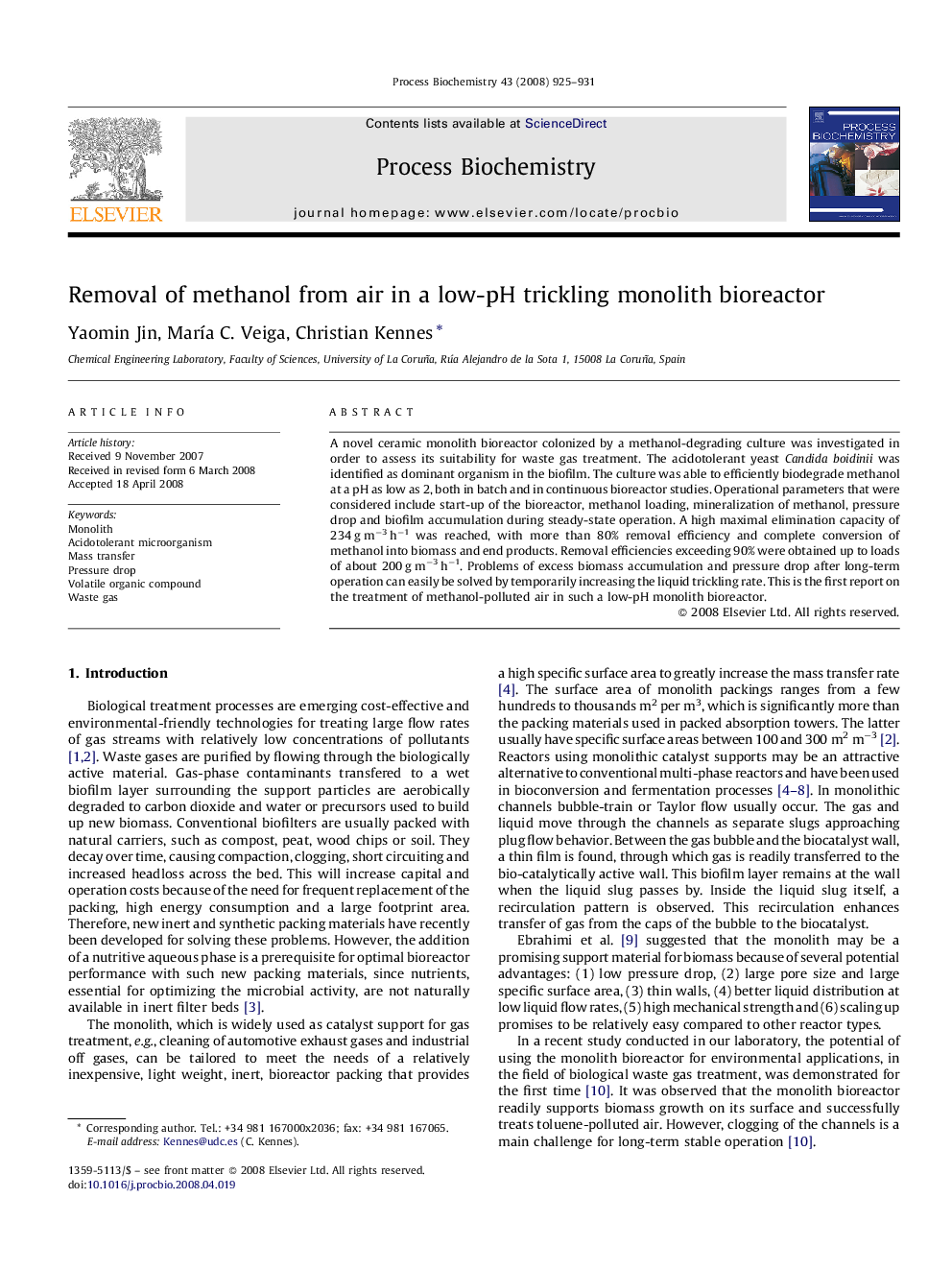| Article ID | Journal | Published Year | Pages | File Type |
|---|---|---|---|---|
| 35417 | Process Biochemistry | 2008 | 7 Pages |
A novel ceramic monolith bioreactor colonized by a methanol-degrading culture was investigated in order to assess its suitability for waste gas treatment. The acidotolerant yeast Candida boidinii was identified as dominant organism in the biofilm. The culture was able to efficiently biodegrade methanol at a pH as low as 2, both in batch and in continuous bioreactor studies. Operational parameters that were considered include start-up of the bioreactor, methanol loading, mineralization of methanol, pressure drop and biofilm accumulation during steady-state operation. A high maximal elimination capacity of 234 g m−3 h−1 was reached, with more than 80% removal efficiency and complete conversion of methanol into biomass and end products. Removal efficiencies exceeding 90% were obtained up to loads of about 200 g m−3 h−1. Problems of excess biomass accumulation and pressure drop after long-term operation can easily be solved by temporarily increasing the liquid trickling rate. This is the first report on the treatment of methanol-polluted air in such a low-pH monolith bioreactor.
